#cpa course
Text
Are you aware of US CPA Exam changes from 2024?
US CPA is one of the most lucrative career options in the accounting field. The global demand for CPAs has increased exponentially over the last few years. Parallelly, the roles and responsibilities of CPAs have also varied in accordance with the ever-changing business landscape. The advent of digitization and the implementation of new technologies have revolutionized the finance and accounting industry. To ensure that CPAs are updated and competent with the technology-driven business landscape, AICPA has introduced the CPA Evolution Initiative.
The US CPA Exam Evolution Initiative will come into effect from January 1, 2024 and will have significant changes to the CPA curriculum. The passage below explores in detail the CPA 2024 changes.
CPA Evolution Initiative – What is the New Model?
The new model has been proposed to make the CPAs more tech competent. The new model will follow a Core + Discipline model with 3 Core Sections and 3 Discipline Sections.
CPA students have to study all three core sections. The three core sections are:
Financial Auditing and Reporting (FAR)
Auditing and Attestation (AUD)
Taxation and Regulation (REG)
CPA students can choose one discipline section out of the three. The three discipline sections are:
Business analysis and reporting (BAR)
Information systems and controls (ISC)
Tax compliance and planning (TCP)
Irrespective of the discipline section the CPA candidate chooses, he can opt to practice in other areas well. His choice of discipline section will not have any effect on his CPA licensure.
Transition Policy – What it Means to CPA Aspirants?
AICPA along with NASBA, have created a smooth transition policy for implementing the new changes. The transition policy is simple and straightforward. Below is the break of the transition policy and how it affects the CPA candidates.
Candidates who have passed and have credit for AUD, FAR, or REG on the current CPA Exam will not need to take the corresponding new core section of AUD, FAR, or REG on the 2024 CPA Exam.
Candidates who have passed and have credit for BEC on the current CPA Exam will not need to take any of the three discipline sections.
Candidates without credit for AUD after Dec 31, 2023, will have to take the AUD core section on the 2024 CPA Exam.
Candidates without credit for FAR after Dec 31, 2023, will have to take the FAR core section on the 2024 CPA Exam.
Candidates without credit for REG after Dec 31, 2023, will have to take the REG core section on the 2024 CPA Exam.
Candidates without credit for BEC after Dec 31,2023 will have to take one Discipline section on the 2024 CPA Exam.
The current sections and curriculum of the CPA exam will not be available for testing after Dec 2023.
CPA Exam 2024 – What are the Content Changes?
There are some significant changes in the curriculum of each section for the CPA exam 2024. The content from the section has been transferred to the other sections.
The only section that remains relatively unchanged is AUD. While no content has been removed from it, some content from BEC has been added to this section. The newly added topics in the AUD section are basic economic concepts and business processes and internal controls. Some existing content from FAR will be moved to the BAR discipline section under the new model. These topics include business combinations, R&D costs, stock compensation, and public company reporting, among many others. Some BEC topics have also been moved to the FAR section. Similarly, some existing REG content has been moved to the TCP discipline section. This content includes gross income concepts.
In the case of discipline sections, the BAR section includes complex technical accounting topics along with lease accounting and revenue recognition. It also includes certain topics from the BEC section such as managerial and cost accounting, variance analysis, non-financial measures of performance, and financial valuation decision models. ISC exam section will evaluate the candidate on knowledge of IT audit and advisory services. It also borrows some BEC topics. Lastly, the TCP discipline section evaluates the candidates on knowledge of federal tax compliance policies and focuses on complex tasks. As specified already, some REG topics have been included in the TCP section.
Below is the summary of how the content has been spread across different sections under the CPA 2024 model:
REG – REG + TCP
FAR – FAR + BAR
AUD – AUD
BEC – FAR + BAR + AUD + ISC
CPA Exam 2024 – Scoring Weight Changes
There is not much change in the scoring weight of the CPA exam. Under the new model, every section has a scoring weight of 50% MCQs and 50% TBSs, except one section. The ISC discipline section gives 60% weightage to MCQs and 40% weightage to TBSs.
CPA Exam 2024 – Section Time and Question Count Changes
There is no change in the section time. The current section time of 4 hours will remain the same for the new model as well. In the case of question count, the new model has 2 changes. The current model has a question count in the range of 62-72 MCQs and 8 Sims, except for BEC. The BEC exam has 4 TBSs and 3 Written Communication questions. Under the new model, the ISC exam section will have 82 MCQs and 6 TBSs. Similarly, FAR and BAR exam sections will have 50 MCQs and 7 TBSs
CPA Exam 2024 – Skill Level Changes
There are no changes in the skill level categories but there are a few minor changes in the skill level allocation for some sections. The changes to the question count also reflect the skill level changes. For instance, ISC with more MCQs has more skill allocation to Remembering and Understanding. AUD section lays more emphasis at Remembering and Understanding and Analysis levels, whereas FAR section lays emphasis at Remembering and Understanding and Application levels. The latter section has fewer questions at the Analysis level.
REG section retains the same skill level with no changes. FAR and BAR have more questions at the application level with MCQs having complex calculations. TCP section contains the highest percentage of questions at the Application level.
It should be noted that these changes are not finalized. There might be a few changes to the new model. But, the core concept of the model will remain the same. AICPA has announced that it is waiting for inputs on the new model till September 30, 2022. Post that, it will review the comments and make any changes if deemed fit. The blueprint will be finalized in December 2022 and will be published in January 2023.
2 notes
·
View notes
Text
What is Core-Plus-Discipline Model in CPA 2024?
The CPA examination is undergoing an evolutionary change in the year 2024. Under the changes, the path to CPA licensure will follow the new “Core-Plus-Discipline Model.” This new model has been proposed by the AICPA (American Institute of Certified Public Accountants) to make CPAs more tech-savvy. In this AUD, FAR and REG will come under core subjects while BEC will be divided into three disciplines-
1. Business Analysis and Reporting (BAR)
2. Information Systems and Controls ( ISC)
3. Tax Compliance and Planning (TCP)
The candidate has to select any one among the three disciplines. So, if you resolve to become a CPA then here are the upcoming evolutionary changes, buckle up your preparations with Miles Education, the best institute for CPA in India.

#CPA course fees#best institute for CPA in India#cpa course#cpa course fees in india#cpa course details
2 notes
·
View notes
Text
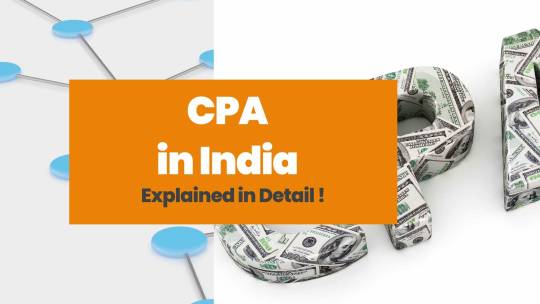
Considering a career in accounting? A CPA course in India can pave your path to success. CPA are top accountants globally, sought after in diverse industries. Start your journey today!
Read more at https://tinyurl.com/yc6svmrw
#cpa#cpa course#cpa course online#cpa course in india#cpa india#education#higher education#elearning#career#accountant#finance professionals#finance and accounting#online courses#accounting professional#acc#accounting career#big4#ipfc
0 notes
Text
Innovations in CPA Certification Programs: Adapting to Industry Changes
In the ever-evolving landscape of accounting and finance, staying ahead of industry changes is essential for professionals seeking to excel in their careers. CPA certification programs have long been recognized as the gold standard for accounting professionals, providing rigorous education and training to equip individuals with the skills and knowledge needed to navigate complex financial landscapes. However, with the rapid pace of technological advancements and shifting market dynamics, CPA certification programs are undergoing significant innovations to adapt to industry changes effectively.
Technology Integration: One of the most notable innovations in CPA certification programs is the integration of technology into coursework and examination processes. With the rise of automation, artificial intelligence, and data analytics, accounting professionals need to be proficient in utilizing digital tools and software to perform their roles efficiently. CPA programs now incorporate modules on emerging technologies such as blockchain, cloud computing, and robotic process automation to ensure graduates are well-equipped to meet the demands of the modern workplace.
Flexible Learning Options: Recognizing the diverse needs and preferences of aspiring CPAs, certification programs are offering more flexible learning options to accommodate busy schedules and varying learning styles. This includes online courses, self-paced modules, and hybrid learning formats that combine in-person instruction with virtual components. By providing flexibility in how coursework is delivered, CPA programs are making education more accessible and inclusive for individuals from diverse backgrounds and geographical locations.
Real-World Application: Another innovation in CPA certification programs is a greater emphasis on real-world application and experiential learning. Beyond theoretical knowledge, students are encouraged to apply concepts learned in the classroom to practical scenarios and case studies. This hands-on approach not only reinforces learning but also prepares individuals for the complexities and challenges they will encounter in their professional careers.
Personalized Learning Paths: To cater to the unique needs and career goals of each student, CPA certification programs are increasingly offering personalized learning paths and customized curriculums. Through assessments, career counseling, and mentorship programs, students can tailor their educational experience to focus on areas of interest or specialization within the field of accounting and finance. This personalized approach ensures that graduates are well-prepared to pursue their desired career paths upon completing their CPA certification.
Continuous Education and Professional Development: In response to the dynamic nature of the accounting profession, CPA certification programs are placing a greater emphasis on continuous education and professional development. This includes offering post-certification courses, workshops, and seminars to help CPAs stay updated on industry trends, regulatory changes, and best practices. By fostering a culture of lifelong learning, certification programs empower CPAs to remain competitive and adaptable in an ever-changing business environment.
In conclusion, innovations in CPA certification programs are essential for ensuring that accounting professionals remain relevant and competitive in today's fast-paced world. By embracing technology, offering flexible learning options, emphasizing real-world application, providing personalized learning paths, and prioritizing continuous education, certification programs are equipping CPAs with the skills and knowledge needed to succeed in the face of industry changes.
Imarticus Learning stands at the forefront of innovation in accounting and finance education, offering cutting-edge CPA certification programs designed to prepare aspiring CPAs for the challenges and opportunities of the future. With a focus on technology integration, flexible learning options, practical application, personalized learning paths, and continuous education, Imarticus Learning empowers students to excel in their accounting careers and make a meaningful impact in the industry.
0 notes
Text
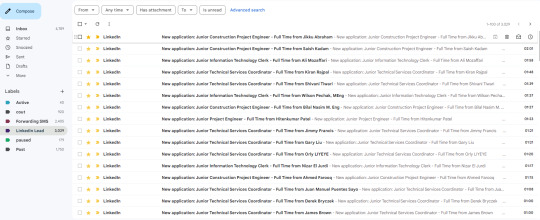
#b2bmarketing#b2b services#usa cpa#email lead#job lead need#job lead#b2b lead generation#leadgeneration#linkedin#b2b#uk#undertale#us#cnc free use#usa#web finds#00s#cpa#cpamarketing#cpafirm#cpa course#cpanel#accounting#finances#tax#bookkeeping#accountants
1 note
·
View note
Text
How can I make money from CPA marketing?

CPA (Cost Per Action) marketing can be a lucrative way to earn money online by promoting offers and getting paid for specific actions taken by your audience. Here's a step-by-step guide on how to make money from CPA marketing:
what is cpa marketing and how to earn money in saudi arabia 2024 — Read More
Choose a CPA Network:Sign up for reputable CPA networks that connect advertisers with publishers (affiliates). Some popular CPA networks include MaxBounty, PeerFly, ClickBank, and CPAlead. Research and compare different networks to find the ones that offer the best commissions and have offers relevant to your niche.
Select Profitable Offers:Browse the offers available on the CPA network and choose ones that align with your audience's interests and demographics. Look for offers with high payouts, good conversion rates, and clear instructions on the desired actions (e.g., email submit, app install, trial sign-up, purchase).
Understand the Offer and Target Audience:Thoroughly understand the offer you're promoting, including its benefits, features, and target audience. Identify the demographics, interests, and pain points of your target audience to tailor your marketing efforts effectively.
Create a Marketing Strategy:Develop a marketing strategy to promote the CPA offers and drive targeted traffic. Consider using a combination of traffic sources, such as:PPC (Pay-Per-Click) advertising (Google Ads, Bing Ads, Facebook Ads)SEO (Search Engine Optimization)Social media marketing (Instagram, Facebook, Twitter, LinkedIn)Email marketingContent marketing (blog posts, videos, podcasts)Influencer marketingTest different strategies and traffic sources to determine which ones yield the best results and optimize your campaigns accordingly.
Build Landing Pages or Funnel:Create dedicated landing pages or funnels for each CPA offer to pre-sell your audience and encourage them to take the desired action. Optimize your landing pages for conversion by including compelling headlines, persuasive copy, clear calls-to-action, and relevant visuals.
Track and Analyze Performance:Use tracking tools provided by the CPA network or third-party tracking software (e.g., Voluum, ThriveTracker, CPV Lab) to monitor the performance of your campaigns. Track key metrics such as clicks, conversions, conversion rates, and ROI (Return on Investment).
Optimize and Scale:Continuously optimize your CPA campaigns based on performance data and insights. Test different ad creatives, targeting options, landing page designs, and offers to improve your conversion rates and profitability. Once you find winning campaigns, scale them up to maximize your earnings.
Comply with Regulations and Policies:Ensure compliance with the rules, regulations, and policies of both the CPA network and the advertising platforms you're using. Adhere to ethical marketing practices, avoid deceptive tactics, and respect the privacy of your audience.
Stay Updated and Adapt:Stay informed about industry trends, changes in advertising platforms, and new CPA offers. Adapt your strategies and tactics accordingly to stay competitive and maximize your earnings in the ever-evolving landscape of CPA marketing.
What is CPA MARKETING — READ NOW
#tech#cpamarketing#cpa course#earn money easily#earn money from home#technology#earn money fast#earn money online#earn money without investment#google ads
0 notes
Text
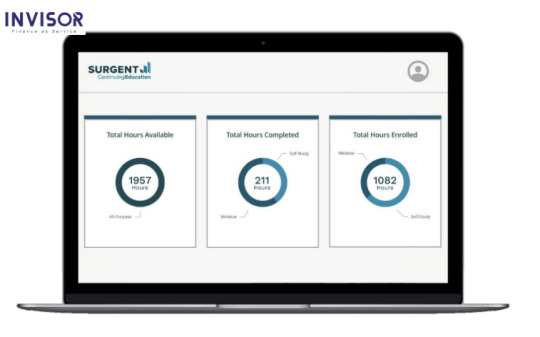
CPA Course
When choosing a CPA course, consider factors such as cost, reputation, pass rates, and the learning format that best suits your needs. It's essential to choose a course that will adequately prepare you for the exam and set you up for success in your accounting career. For more details visit https://www.invisor.in/cpa-usa
0 notes
Text
Unveiling the Secrets of CPA Marketing: Masterclass Edition
In the world of digital marketing, CPA (Cost Per Action) marketing has emerged as a lucrative avenue for both advertisers and publishers. However, navigating the complexities of CPA marketing requires more than just basic knowledge; it demands a deep understanding of strategies, techniques, and insights that can only be gained through comprehensive education. In this masterclass edition, we will delve into the success course of CPA marketing, unraveling its secrets and providing you with the tools you need to thrive in this dynamic industry.
Understanding CPA Marketing: CPA marketing revolves around the concept of advertisers paying publishers a fee for every specific action completed by a referred visitor, such as making a purchase, filling out a form, or signing up for a trial.
Mastering the Fundamentals: To excel in CPA marketing, it's essential to have a solid grasp of the fundamentals. This includes understanding key metrics such as CPA, EPC (Earnings Per Click), and conversion rates, as well as knowing how to select the right offers and target the most relevant audience segments. Additionally, mastering tracking and analytics tools is crucial for optimizing campaigns and maximizing profitability.
Crafting Compelling Campaigns: Creating successful CPA marketing campaigns requires a combination of creativity, data analysis, and strategic thinking. From crafting attention-grabbing ad creatives to optimizing landing pages for conversions, every aspect of the campaign must be meticulously planned and executed. Moreover, leveraging advanced targeting techniques, such as retargeting and lookalike audiences, can help amplify campaign performance and drive higher-quality leads.
Exploring Advanced Strategies: In the ever-evolving landscape of digital marketing, staying ahead of the curve is paramount to success. This is where advanced CPA marketing strategies come into play. From exploring niche markets and verticals to implementing automation and scaling tactics, mastering advanced strategies can unlock new levels of growth and profitability. Additionally, staying abreast of industry trends and emerging technologies can provide a competitive edge in the marketplace.
Continuous Learning and Optimization: Success in CPA marketing is not a one-time achievement but an ongoing journey of learning and optimization. By staying curious, testing new ideas, and analyzing performance data, marketers can identify areas for improvement and fine-tune their strategies for better results. Furthermore, networking with industry peers, attending conferences, and participating in forums can provide valuable insights and foster professional growth.
Conclusion: The world of CPA marketing offers endless opportunities for those willing to invest the time and effort into mastering its intricacies. By following the success course outlined in this masterclass edition, you can unlock the secrets of CPA marketing and embark on a journey toward greater profitability and success. Remember, success doesn't happen overnight, but with dedication, perseverance, and a commitment to continuous learning, you can achieve remarkable results in the realm of CPA marketing.
>>>> About Course>>>
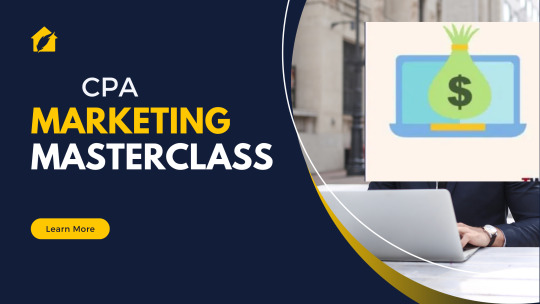
0 notes
Text
The Role of CPAs in Driving Small Business Growth

1. Financial Planning:
2. Tax Optimization:
3. Financial Analysis:
4. Advisory Services:
5. Compliance Support:
Enroll now to learn more about accounting! Visit: https://bit.ly/44gWZ3X
#cpa training#us cpa exam#cpa training institute#cpa classes#cpa course#us cpa course#certified public accountant#us cpa
0 notes
Text
Understanding CPA: A Simple Guide
In the world of finance and accounting, the term "CPA" is often thrown around. But what exactly does it mean, and how does it relate to marketing and different regions like Canada and the United States? Let's break it down into simple terms.
What is a CPA?
CPA stands for Certified Public Accountant. It's a professional designation that signifies expertise in accounting and financial matters. CPAs undergo rigorous education, examination, and experience requirements to earn their certification. They are trusted advisors who provide various services such as tax preparation, auditing, financial planning, and consulting.
CPA Marketing
In the realm of marketing, CPA takes on a slightly different meaning. Here, CPA stands for Cost Per Action or Cost Per Acquisition. It's a pricing model where advertisers pay a fee whenever a specific action is completed, such as a purchase, form submission, or app installation. CPA marketing is popular in online advertising as it allows advertisers to pay only for desired outcomes, making it a cost-effective strategy.

CPA in Canada
In Canada, CPA refers to the Chartered Professional Accountant designation. It's the unified accounting designation that replaced several legacy designations such as Chartered Accountant (CA), Certified Management Accountant (CMA), and Certified General Accountant (CGA). Becoming a CPA in Canada involves completing a prescribed educational program, passing the CPA Examination, and fulfilling practical experience requirements.
Finding a CPA Close to Me
If you're in need of accounting services, you might search for a "CPA close to me." This simply means looking for a Certified Public Accountant in your local area. Working with a CPA close to you offers the advantage of easy accessibility for meetings and consultations, facilitating smoother communication and collaboration.
American CPA
In the United States, CPA also refers to Certified Public Accountant. Similar to Canada, CPAs in the US are highly respected professionals with expertise in accounting and finance. They play crucial roles in auditing financial statements, preparing tax returns, providing consulting services, and ensuring compliance with regulatory requirements.
What Are CPAs?
In summary, CPAs are highly trained professionals in the fields of accounting and finance. They provide a range of services including tax preparation, auditing, financial planning, and consulting. In marketing, CPA refers to Cost Per Action, a pricing model where advertisers pay for specific actions. In Canada and the United States, CPA represents the professional designation for accountants who have met stringent educational, examination, and experience requirements.
Whether you're seeking accounting services, delving into marketing strategies, or simply curious about the world of finance, understanding CPA can provide valuable insights into these domains.
#cpamarketing#cpanel#cpa course#cpafirm#cpa services#accounting#entrepreneur#beautiful photos#curvy and cute#business growth#cpau#canandaigua#new york city#san francisco
0 notes
Text
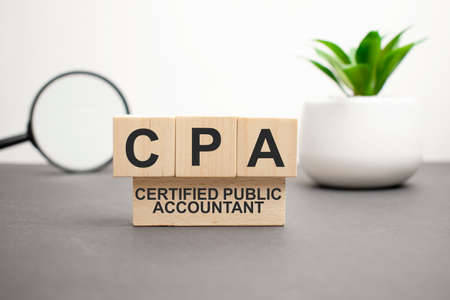
Ready to pursue a CPA course in India? Explore top institutions, course details, and career prospects. Start your journey to becoming a certified professional accountant today!
Join now : https://tinyurl.com/mt62mzk8
Connect with us for more information:
📲+91 9903100338
📧[email protected]
#cpa#cpa course#cpa course online#cpa exam#cpa firm#cpa classes#cpa marketing#cpa india#cpa course in india#education#e learning#higher education#career#finance and accounting#accounting professional#finance professionals#online courses#accounting career#big4#ipfc
0 notes
Text

Are you looking to advance your career in Accounting Profession? Then the CPA course is the right choice for you.
Start your US CPA Journey with FinTram Global. Learn from the Industry experience global finance leaders
Start with Rs. 7990/- only and Get 14 Days FREE Trail FinTram Global
0 notes
Text
CPA Exam 2024 — What are the Content Changes?
There are some significant changes in the curriculum of each section for the CPA exam 2024. The content from the section has been transferred to the other sections.
The only section that remains relatively unchanged is AUD. While no content has been removed from it, some content from BEC has been added to this section. The newly added topics in the AUD section are basic economic concepts and business processes and internal controls. Some existing content from FAR will be moved to the BAR discipline section under the new model. These topics include business combinations, R&D costs, stock compensation, and public company reporting, among many others. Some BEC topics have also been moved to the FAR section. Similarly, some existing REG content has been moved to the TCP discipline section. This content includes gross income concepts.
In the case of discipline sections, the BAR section includes complex technical accounting topics along with lease accounting and revenue recognition. It also includes certain topics from the BEC section such as managerial and cost accounting, variance analysis, non-financial measures of performance, and financial valuation decision models. ISC exam section will evaluate the candidate on knowledge of IT audit and advisory services. It also borrows some BEC topics. Lastly, the TCP discipline section evaluates the candidates on knowledge of federal tax compliance policies and focuses on complex tasks. As specified already, some REG topics have been included in the TCP section.
Below is the summary of how the content has been spread across different sections under the CPA 2024 model:
REG — REG + TCP
FAR — FAR + BAR
AUD — AUD
BEC — FAR + BAR + AUD + ISC
CPA Exam 2024 — Scoring Weight Changes
There is not much change in the scoring weight of the CPA exam. Under the new model, every section has a scoring weight of 50% MCQs and 50% TBSs, except one section. The ISC discipline section gives 60% weightage to MCQs and 40% weightage to TBSs.
CPA Exam 2024 — Section Time and Question Count Changes
There is no change in the section time. The current section time of 4 hours will remain the same for the new model as well. In the case of question count, the new model has 2 changes. The current model has a question count in the range of 62–72 MCQs and 8 Sims, except for BEC. The BEC exam has 4 TBSs and 3 Written Communication questions. Under the new model, the ISC exam section will have 82 MCQs and 6 TBSs. Similarly, FAR and BAR exam sections will have 50 MCQs and 7 TBSs
CPA Exam 2024 — Skill Level Changes
There are no changes in the skill level categories but there are a few minor changes in the skill level allocation for some sections. The changes to the question count also reflect the skill level changes. For instance, ISC with more MCQs has more skill allocation to Remembering and Understanding. AUD section lays more emphasis at Remembering and Understanding and Analysis levels, whereas FAR section lays emphasis at Remembering and Understanding and Application levels. The latter section has fewer questions at the Analysis level.
REG section retains the same skill level with no changes. FAR and BAR have more questions at the application level with MCQs having complex calculations. TCP section contains the highest percentage of questions at the Application level.
0 notes
Text
Who is eligible for CPA course?

Eligibility requirements for the Certified Public Accountant (CPA) course and exam in the United States vary by state because each state's Board of Accountancy sets its own specific requirements. However, there are some common eligibility criteria that most states share. Here is a general overview of the eligibility requirements:
Education: Typically, you need to have at least a bachelor's degree or higher from an accredited college or university. The degree should include a specific number of accounting and business-related credit hours. The total number of credit hours required varies by state but is often around 150 credit hours. It's important to check your specific state's requirements.
Accounting Courses: You are usually required to complete a specific number of accounting courses, including courses in areas like financial accounting, auditing, taxation, and management accounting. The specific course requirements can vary by state.
Work Experience: Most states require candidates to gain relevant work experience in the field of accounting. This work experience is typically done under the supervision of a licensed CPA and can range from 1 to 2 years, depending on the state.
CPA Exam: Passing the Uniform CPA Examination is a fundamental requirement. This exam consists of four sections: Auditing and Attestation (AUD), Business Environment and Concepts (BEC), Financial Accounting and Reporting (FAR), and Regulation (REG). Candidates must pass all four sections within a specific timeframe, which varies by state.
Ethics Exam: Some states require candidates to pass an ethics exam, which covers professional ethics and standards related to the practice of accounting.
Character and Background Check: Many states conduct character and background checks as part of the application process to ensure that candidates have good moral character.
Fees: There are fees associated with becoming a CPA, including fees for the CPA exam, licensure application, and renewal fees.
0 notes
Text
What is the hardest CPA module?

The difficulty of CPA course (Certified Public Accountant) exam modules can vary from person to person based on individual strengths, background knowledge, and familiarity with the subject matter. However, many candidates commonly perceive the CPA module on Financial Accounting and Reporting (FAR) as one of the most challenging. Here's why:
Comprehensive Content
The FAR section covers a wide range of complex financial accounting topics, including accounting standards, financial statements, business combinations, consolidations, governmental accounting, and non-profit accounting. The sheer breadth of content can be overwhelming for some candidates.
Complex Accounting Standards
FAR delves deep into generally accepted accounting principles (GAAP) and International Financial Reporting Standards (IFRS). Candidates need to understand and apply these standards to various scenarios, which can be intricate and time-consuming.
Calculations and Analysis
The FAR section often involves detailed calculations related to topics like inventory valuation, leases, pensions, and bond amortization. Candidates need to not only understand the concepts but also perform accurate calculations and analyses.
Conceptual Understanding
Many FAR topics require candidates to have a strong conceptual understanding of financial reporting and accounting principles. This involves interpreting financial statements, understanding the relationship between various financial metrics, and applying critical thinking skills.
Time-Intensive Preparation
Due to the extensive content and calculations, candidates often find that preparing for FAR requires a significant amount of study time and practice. This can make it more challenging to balance with work or other commitments.
0 notes
Text

Dream Big, aim high
On the path of becoming a US CPA!
Get the edge in your accounting career...
Join now and rewrite your success story.
Contact: +91-9289881454, +91-9667742855
visit: www.fintram.com
Subscribe to our YouTube Channel https://www.youtube.com/c/FinTramGlobal
0 notes